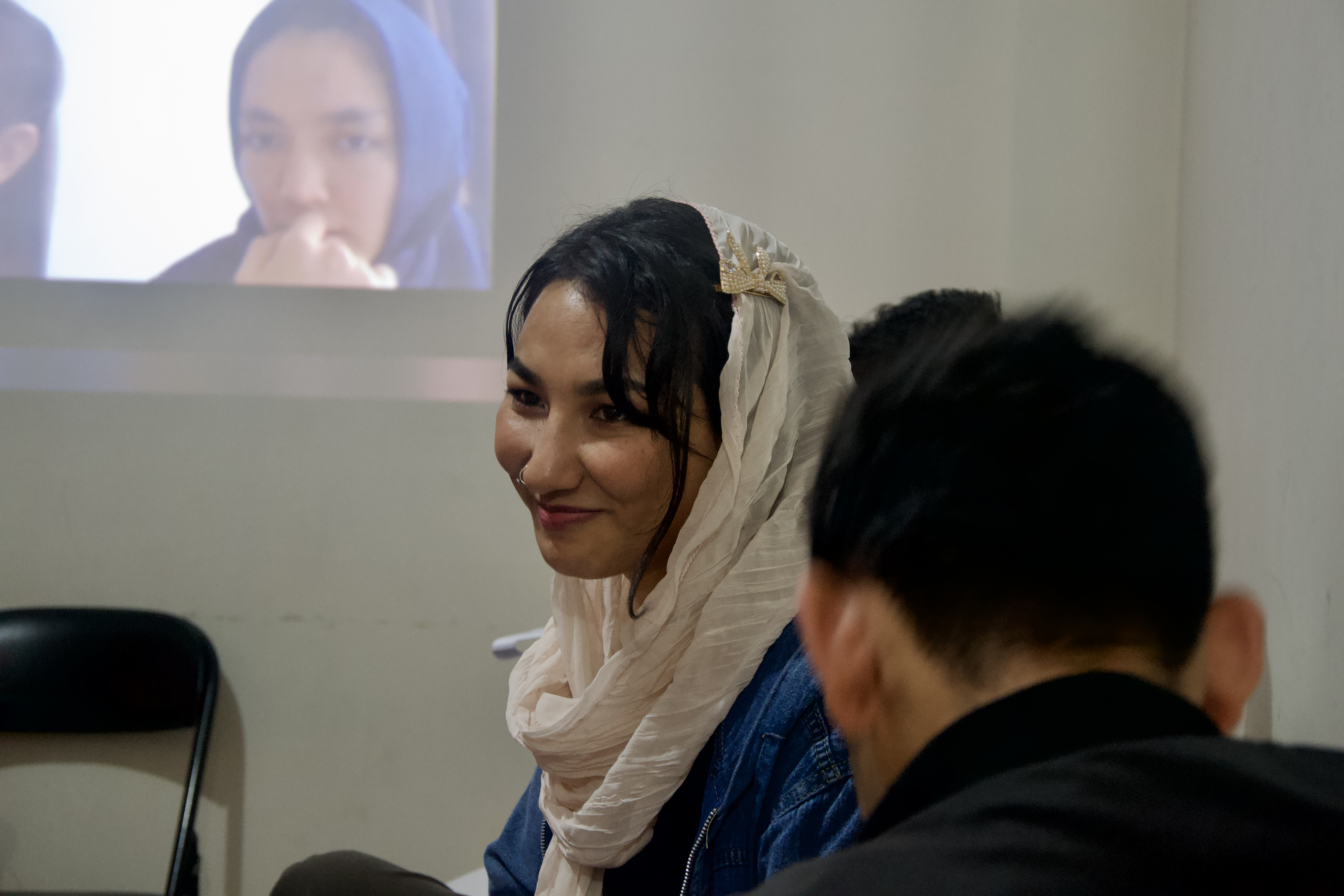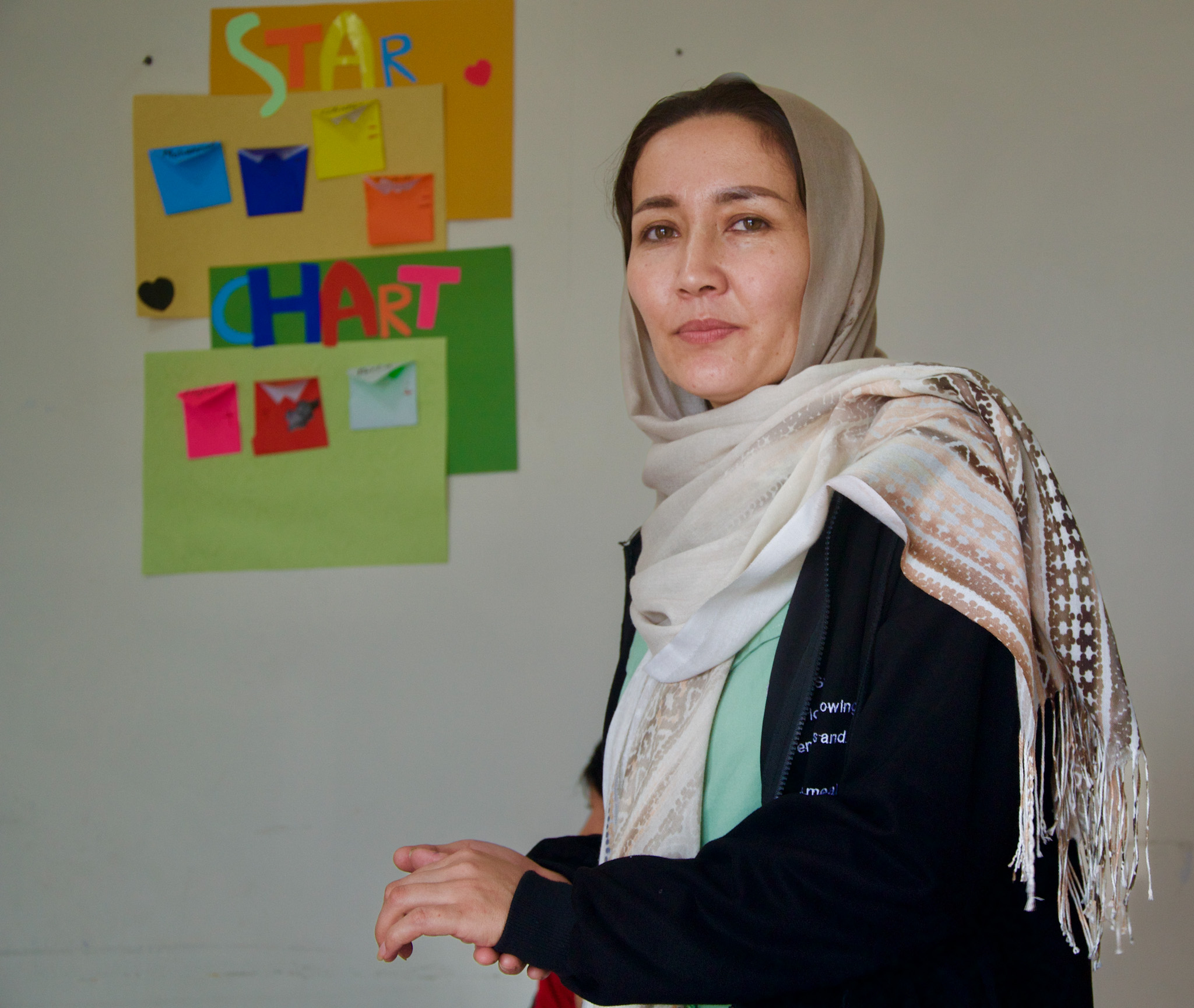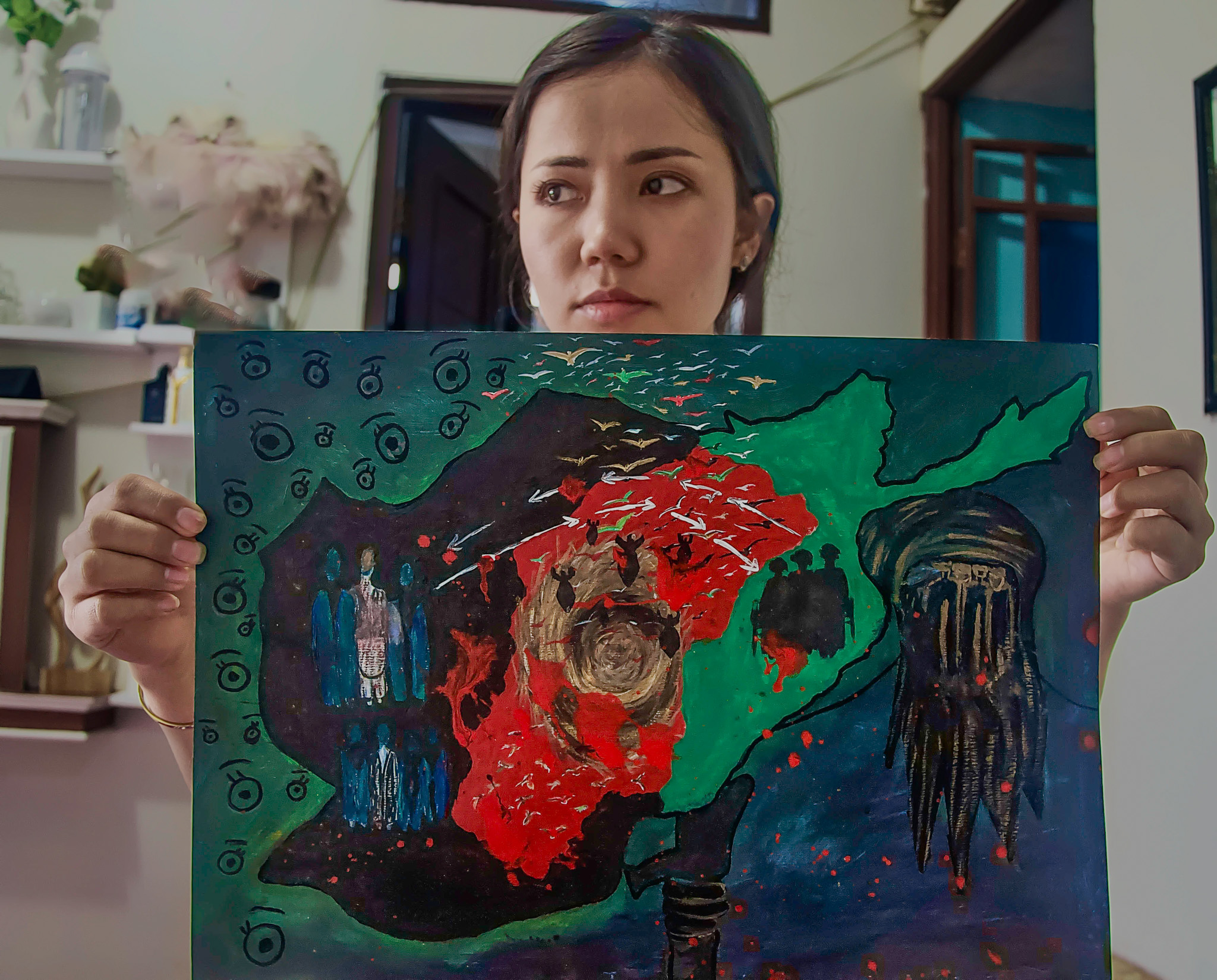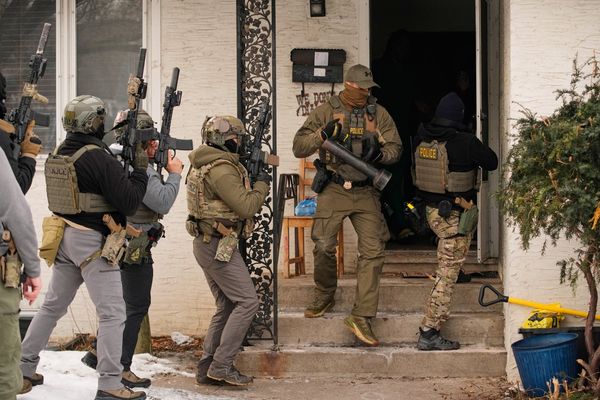
Cisarua, Indonesia – Since returning to power in Afghanistan, the Taliban has tried to silence women but thousands of kilometres away in Indonesia – where many have fled to escape persecution – Afghan women are finding their voice.
“Here, women can be a boss; they can be teachers, they can be students…they are strong,” 26-year-old Khatera Amiri told Al Jazeera.
Khatera is the manager of the Cisarua Refugee Learning Centre (CRLC), which in 2014 was the first refugee learning centre established in Cisarua, Bogor Regency, 80km (50 miles) south of Jakarta.
Started by a group of Hazara refugees, the founders initially turned to the men who had worked as teachers in Afghanistan to lead the classes but after they declined, fearing it would compromise their protection claims, the women stepped forward.
There are now at least seven refugee-led learning centres in Bogor that serve some 1,800 children, as well as three in Jakarta and one in the Thai capital, Bangkok. With an eye on potential resettlement in a third country, English is the language of instruction.
“It’s transformative – especially for young women,” said Lucy Fiske, a senior academic at the University of Technology Sydney, who spent six years researching the impact of the refugee learning centres on Hazara women.
Fiske has kept in contact with many of the refugees who have been resettled elsewhere.
“What we are seeing now is people straight out of these schools going to uni,” she said.

Many teachers at the learning centres, like Khatera, start out as students and become teachers. Khatera grew up in Ghazni in central Afghanistan and was a gifted student. She skipped multiple grades and completed an accounting course at the age of 19.
She fled to Indonesia in 2016 with her three siblings, the youngest was 14 at the time, after the Taliban kidnapped her mother, brother and eight-year-old sister.
“I had to save my siblings,” she said.
Finding peace
Like many refugees, Khatera travelled to India and Malaysia before arriving in Indonesia.
As of February, there were some 12,710 refugees registered with the United Nations refugee agency (UNHCR) in the country, just more than half from Afghanistan and most of those Hazaras. Said to be descended from Genghis Khan, the Hazaras are one of Afghanistan’s largest ethnic groups and come from the country’s central highlands. They say they have long suffered persecution, including by the Taliban.
Many arrived in Indonesia in the hope of boarding a boat to Christmas Island, an Australian territory off the southern coast of Indonesia’s Java island, but when Australia launched Operation Sovereign Borders in September 2013 – and implemented its notorious Pacific Island offshore immigration policy – many found themselves stuck.
Cisarua is now home to about 5,000 mostly Hazara refugees and many have been living in limbo for a decade, hoping for a chance at resettlement.
The latest figures from the UNHCR’s Forced Displacement report show just 114,300 people globally got that opportunity in 2022.
When Khatera arrived in Indonesia, she travelled to Cisarua, but living far away from other Afghans she says she experienced bullying and sexual harassment.
“In 2016 and 2017, it was a disaster full of challenges and hardship, and I will never forget that. No one was supporting me,” she said, “I am the parents here; I had the responsibility of three siblings, especially in a strange community; you can’t trust anyone.”
One day, Khatera met one of the CRLC’s teachers when she was in town and he encouraged her and her siblings to attend classes at the CRLC. It was the first place she felt safe since fleeing Afghanistan. She studied English, maths, science and Bahasa Indonesian, and her confidence grew.
“I found peace here, I found community, I found the best version of myself,” she said.

Her leadership skills were recognised and she was encouraged to apply to become a teacher. She has managed the GED programme, which is taught online by teachers in Australia and allows students to gain the equivalent of a United States high school diploma.
Khatera is currently completing her GED. She plans to take the first two exams later this year.
“My aim was bigger. My dream was bigger, I wanted my certificate from the university, I wanted a good job so I can be in a good situation financially,” she told Al Jazeera.
Indonesia is not a signatory to the 1951 Refugee Convention but passed its own refugee law in December 2016, which provides access and temporary protection to refugees in the country until longer-term solutions can be found.
Those registered with the UN refugee agency can live in the community – although they are not allowed to work – and send their children to local schools.
In reality, however, no laws in Indonesia protect refugee children’s right to education and they face many obstacles in accessing local schools, including language barriers and disruption to their education caused by displacement.
A positive difference
In the community, it is common for students and teachers to move between refugee learning centres. Khatera Jamshidzada, 27, who also goes by the name Sofie, has taught at two refugee learning centres in Cisarua.
“Teaching is my hobby; when I teach, I forget about my problems.”
Sofie was a teacher in Afghanistan but the Taliban threatened her and attacked her school.
“When I left Afghanistan, I thought I’d never teach again,” she told Al Jazeera.
Since resuming teaching in Indonesia, she has also taught refugee children from other countries.
“I was so proud when I started teaching again because I can help another lot of children from different country from different culture, not just an Afghan child.”
Sofie feels that by teaching, she can give refugee children the childhood they’ve missed out on. “I can be a positive person in their future.”
One of the CRLC’s first students was Farahnaz Salehi, who is now 24.
She has been in Indonesia for 10 years and remembers how she and her family isolated themselves at the beginning.

They slept most of the day and kept themselves to themselves, fearing that if they mixed with other refugee families, they would be deported back to Afghanistan.
“I was a very shy girl in my own country. I was naughty… but I didn’t have much courage to talk and to speak with a loud voice but today, I can,” she said.
Farahnaz was encouraged to pursue her passion for art and also played football for the first time. The sport helped her cope with the uncertainty of refugee life and while her mother was reluctant to let her keep playing, she eventually gave in.
Now, after teaching art at the CRLC for seven years, Farahnaz is focusing on her own work and hopes to stage an exhibition of her art.
“I am who I am because of CRLC,” she said.
While the refugee learning centres in Bogor are a source of pride for the community, the restrictions on refugees’ ability to work and study, and the uncertainty of refugee life have been exacerbated by the pandemic and the Taliban’s return to power.
At least 13 refugees have died by suicide since 2014.
The tiny number of places made available on resettlement programmes means some refugees could be in Indonesia for as long as 25 years before they find a permanent home.
Still, a UNHCR Indonesia spokesperson told Al Jazeera that, since the Taliban’s takeover, many resettlement countries have increased the number of places available.
“We hope that the increased number of resettlement slots could help more Afghan refugees in the country to find solutions,” the spokesperson said.

Despite being exhausted from years in limbo, Khatera, Sofie and Farahnaz believe the treatment of women in Afghanistan fuels their need to strive for more.
“My friend who now lives in America, he was saying to me, Farahnaz… Women in Afghanistan, they don’t have the voice to talk about what is going on with their lives – you try to be their voice…” Farahnaz recalled.
“I felt what he was saying.”







